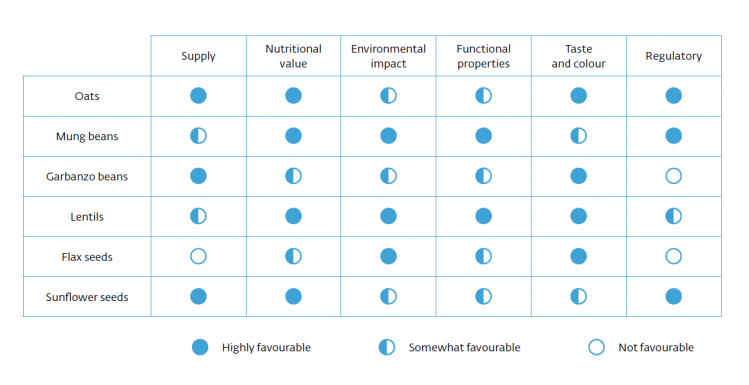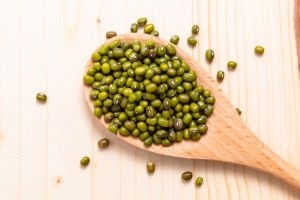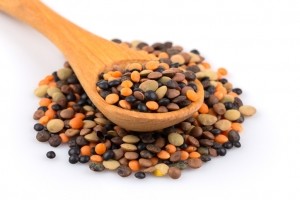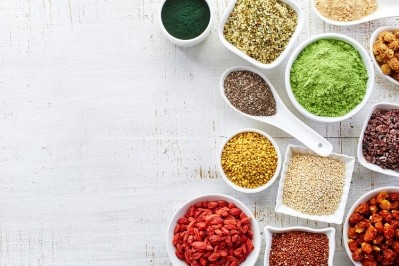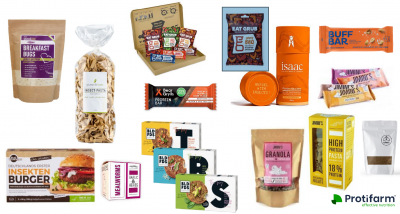Berkeley researchers identify six up-and-coming protein ‘game changers’
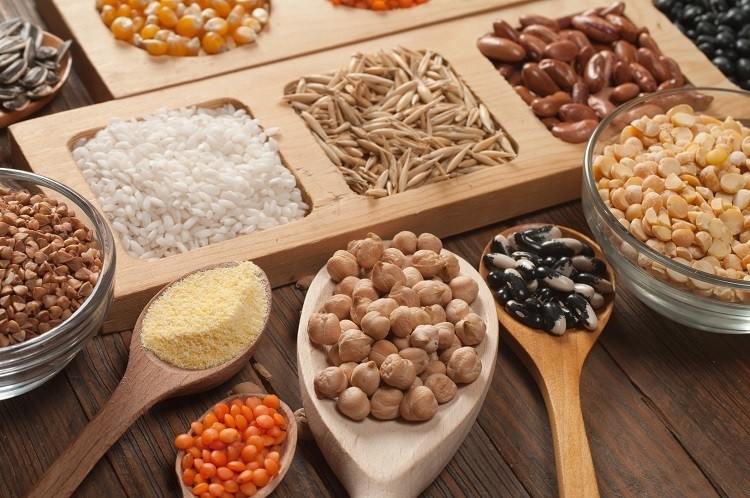
A research project conducted by UC Berkeley’s product development programme, in collaboration with Swiss ingredients group Givaudan, has identified which ‘up-and-coming’ proteins hold the most promise for the food and beverage industry.
Givaudan tasked UC Berkeley students with researching and mapping emerging alternative proteins for nutritional beverages. Students looked at 44 different protein beverage products and 42 plant proteins.
Each of the unique plant proteins was scored according to its commercial viability, protein content, sustainability, allergenicity, flavour and colour, in order to identify the six with the most potential to ‘change the industry’.
“Our students have worked closely with Givaudan to profile a broad spectrum of proteins using a range of key filters. We scored the proteins for commercial, national, and sustainability factors and then ranked them for additional benefits,” said UC Berkeley’s Sudhir Joshi.
“These attributes make these proteins appealing candidates for new product development. It is undoubtedly an exciting time in the industry, and we are pleased to be playing such a pivotal role in its future.”
The plant-based boom
Givaudan has been collaborating with UC Berkeley on plant-based protein since 2017, when it launched an Alternative Meats Lab at the university to research all alternative protein sources, ranging from plants to insects and in-vitro meat.
The collaboration will help Givaudan cater to consumer demand for plant-based, as Western populations increasingly turn to alternative proteins for health, ethical, and environmental reasons.
In the EU, global demand for plant-based is on the rise – presenting an opportunity for market growth. “Increased demand for organic…supply chains, combined with a rise in the number of flexitarian, vegetarian and vegan diets, will expand markets for pulses and processed plant proteins,” according to the European Commission.
Dr. Flavio Garofalo, global category director of savoury flavours and natural ingredients at Givaudan, said it was this growing demand that helped inform the research initiative. “With an ever increasing demand for proteins, we asked ourselves if the best proteins are currently being used, and if niche proteins that are in use today could play a bigger role in the future.
“This forward-thinking research will help our customers to navigate the ever-changing alternative protein landscape.”
Having evaluated each of the 42 plant proteins, the UC Berkeley students used a process of elimination – based on the key criteria – to identify the six most promising proteins for the food and beverage industry.
The leading candidates came from three plant categories: cereals, legumes and oil seeds.
Cereals: oats
Leading the list of potentially ‘game changing’ proteins is the staple grain, oat.
Oat is the seventh most abundant cereal produced in the world. In the EU, oats are grown across a number of Member States, with significant production in Spain, the UK, Finland and Poland. In 2017, oats made up just 2.6% of total cereal production across the bloc.
Oats are versatile and resource-efficient, noted Givaudan, with key nutrition benefits. The grain contains 16g of protein per 100g, and serves as an “excellent” source of vitamins, minerals, fibre, antioxidants, and essential amino acids.
“Oats have been shown in clinical trials to be beneficial in reducing the risk of heart disease by lowering cholesterol because of a high beta glucan content,” Garofalo told FoodNavigator. “Additionally, beta glucans promote gut health, reduce the adsorption rate of sugars, and can contribute positively to weight management.”
Oats are already used in food applications across the globe, and have experienced recent popularity as a base ingredient in alternative milk products. The cereal can also be used as a functional ingredient, helping to deliver desirable mouthfeel in beverages. Oat oil can be leveraged as an emulsifier for use in spreads, ice cream and chocolate, according to Givaudan.
Legumes: mung beans, garbanzo beans and lentils
Three members of the legume family were selected by Berkeley researchers: mung beans, garbanzo beans (or chickpeas) and lentils.
Legumes are cultivated and consumed in many parts of the world, meaning they are often associated with less transport energy. This can make them a popular choice as a sustainable ingredient – given their often lower carbon footprint compared to other protein sources.
Mung beans contain 23.86g of protein per 100g. Key exporters of the legume include Myanmar, China, Australia and Tanzania. Mung beans provide very little waste, which also makes them a highly cost-effective ingredient, claims Givaudan.
Nutrition-wise, mung beans are rich in protein, folate, fibre, and antioxidants. And in beverage applications, the legume has high water solubility, water holding capacity and emulsification properties, the ingredients group continued, “making them effective to use”.
Garbanzo beans, or chickpeas, contain slightly less protein than mung beans – at 20.47g/100g – yet also have good water solubility. The thought-to-be Middle Eastern legume, which is already a key ingredient in hummus and falafel, also has emulsifying potential, according to Givaudan.
This makes garbanzo beans flexible and effective in applications, the group continued, adding that its nutrient profile could help businesses make “attractive health claims” for producers and consumers. The legume is high in fibre, amino acids, and selenium – a trace mineral that plays an important role in immune system health.
Lentils were listed as the fourth most promising source of protein, according to Berkeley’s researchers. Predominantly grown in Canada, India and Turkey, the legume is indigenous to Western and Central Asia.
Givaudan says lentils provide a “fantastic” and “economical” source of essential amino acids, polyphenols, minerals and antioxidants, with 24.63g of protein per 100g. “Additionally, lentils have the added benefit of association with numerous health effects according to recent research, including lowered risk of high cholesterol, diabetes, cancer, and cardiovascular diseases.”
As an ingredient, lentils are “well-suited” for use in beverages, the ingredients group continued.
Oilseeds: flax and sunflower seeds
Flaxseed, or linseed, contains 18g of protein per 100g. According to Givaudan, the oil seed could prove ‘game changing’ in the protein sector, in part, due to its agricultural production. While currently limited to certain regions – including Russia and Belgium – its production is more efficient than pea protein, and “easily scalable”.
From a health perspective, the seeds are a good source of both omega-3 fats and dietary fibre. And for food and beverage applications, flaxseeds boast good emulsifying properties.
Coming in at number six, sunflower seeds are effective, versatile, and resource-efficient, claims Givaudan. The oil seed contains slightly more protein than linseed – at 21g per 100g.
“Sunflower seeds are naturally sustainable with a rich catalogue of health benefits such as antioxidants and anti-inflammatory ingredients, as well as being a good source of minerals and essential amino acids,” Garofalo told this publication.
“They are extremely versatile and suitable for use in a wide variety of product formulations.”
First published on 26 June 2019 with additional comments added on 3 July 2019.
